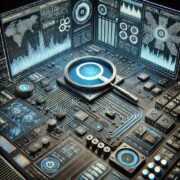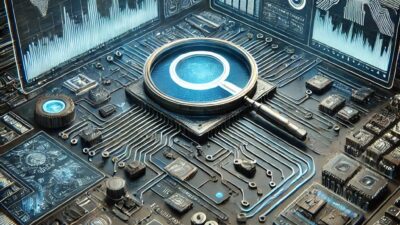In the rapidly evolving world of technology, the role of an AI Engineer has become increasingly pivotal. With advancements in artificial intelligence (AI) transforming industries and creating new opportunities, understanding the job description for an AI Engineer is crucial for both prospective candidates and employers. This article delves into the key aspects of an AI Engineer’s role, including essential skills, responsibilities, and qualifications required for success in this field.
What is an AI Engineer?
An AI Engineer is a specialized role focused on developing and implementing artificial intelligence models and systems. They work on creating algorithms that enable machines to learn from data and make decisions or predictions. AI Engineers are crucial in various sectors, including healthcare, finance, automotive, and more, where AI applications are increasingly integrated.
Key Responsibilities
- Model Development and Training: AI Engineers design and develop machine learning models and algorithms tailored to specific business needs. They are responsible for training these models using large datasets to ensure accuracy and efficiency.
- Data Analysis and Processing: Handling and processing large volumes of data is a core responsibility. AI Engineers clean, preprocess, and analyze data to make it suitable for training AI models.
- Algorithm Optimization: Continuous improvement of algorithms is essential. AI Engineers work on optimizing models for performance, speed, and accuracy.
- Integration and Deployment: Once a model is developed and tested, AI Engineers integrate it into existing systems and applications. They ensure that the AI solutions are deployed smoothly and function as intended.
- Collaboration and Communication: Working with cross-functional teams, including data scientists, software developers, and business analysts, is a significant part of the role. Effective communication ensures that AI solutions align with business objectives.
Essential Skills and Qualifications
- Educational Background: A bachelor’s degree in computer science, data science, artificial intelligence, or a related field is typically required. Advanced degrees may be preferred for more senior positions.
- Technical Proficiency: Proficiency in programming languages such as Python, R, and Java is crucial. Knowledge of AI frameworks like TensorFlow, Keras, or PyTorch is also important.
- Machine Learning Expertise: A deep understanding of machine learning algorithms, neural networks, and statistical methods is essential for developing effective AI models.
- Data Handling Skills: Experience with data manipulation, data visualization, and database management is important for managing and processing large datasets.
- Problem-Solving Ability: Strong analytical and problem-solving skills are necessary to address complex challenges and optimize AI solutions.
Conclusion
The role of an AI engineer job description is dynamic and multifaceted, requiring a blend of technical skills, domain expertise, and effective collaboration. As AI continues to advance, the demand for skilled AI Engineers will grow, making it a promising career path for those with a passion for technology and innovation. By understanding the key responsibilities and qualifications associated with this role, both aspiring AI Engineers and employers can better navigate the evolving landscape of artificial intelligence.





Comments